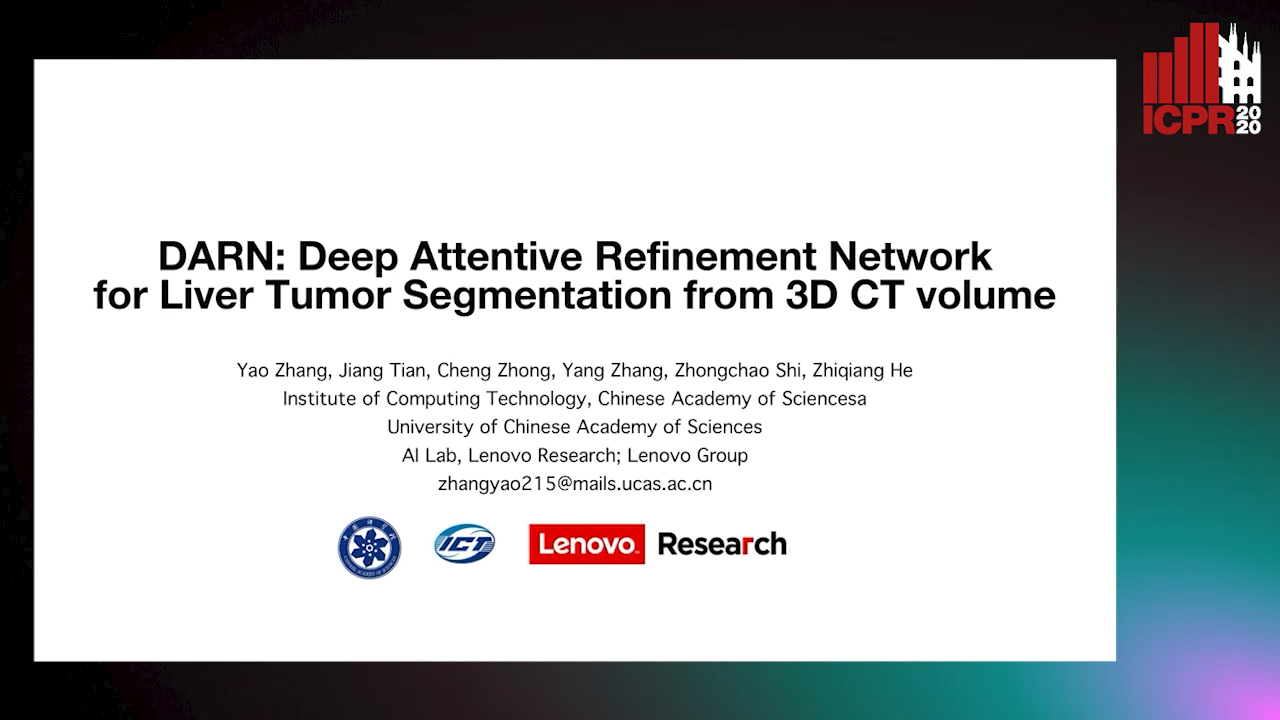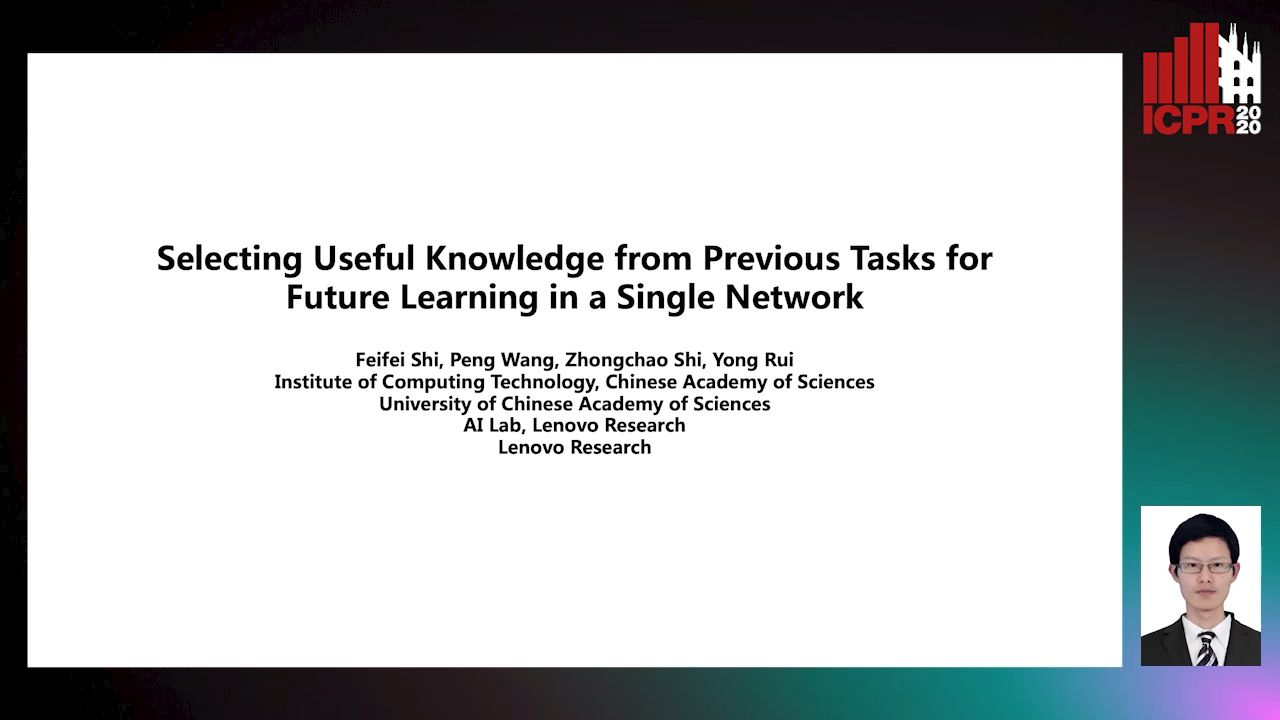Zhongchao Shi
Papers from this author
DARN: Deep Attentive Refinement Network for Liver Tumor Segmentation from 3D CT Volume
Yao Zhang, Jiang Tian, Cheng Zhong, Yang Zhang, Zhongchao Shi, Zhiqiang He

Auto-TLDR; Deep Attentive Refinement Network for Liver Tumor Segmentation from 3D Computed Tomography Using Multi-Level Features
Abstract Slides Poster Similar
Selecting Useful Knowledge from Previous Tasks for Future Learning in a Single Network
Feifei Shi, Peng Wang, Zhongchao Shi, Yong Rui

Auto-TLDR; Continual Learning with Gradient-based Threshold Threshold
Abstract Slides Poster Similar